In 2017 I wrote an article for “Playing Pasts” entitled “Women’s Hockey and the Introduction of Leagues”. It outlined the development of women’s leagues hockey from 1910, when the Ladies Hockey League was formed in Manchester. At the time I wondered why men’s leagues did not develop in the same way. New research has now uncovered that there was in some areas a desire for men to play league hockey and it was cause for some debate within the hockey world.
The governing body for the men’s game was the Hockey Association (H.A.). Their view was, as Nevill Miroy wrote in his book “The History of Hockey”, that “Hockey was a game for gentlemen and must be played by gentleman for the game’s sake”. The women’s governing body the All England Women’s Hockey Association (A.E.W.H.A.) agreed and both Associations were not in favour of playing in leagues or for cups.
This may have been the view of the southern based governing bodies but views in the North seem to have been different. The Liverpool Mercury on January 23 1893 reported on a men’s game on the Wirral between New Brighton Wanderers and Oxton,
“These clubs, who head the Liverpool District Hockey League, met at Liscard on Saturday”
Wanderers won the game 5 – 0 and a year later, on February 12th, 1894 the same paper reported the Wanderers had won again, defeating Oxten, 3 – 2 making,
“the Wanderers position safe for the head of the district league”
Frustratingly, I have been unable to find any further information about the ‘league’ referred to and at this stage it is not possible to confirm much about the status of the league and even it was an actual league.
Jo Halpin in her doctoral thesis ‘Will you walk into our parlour’, points to evidence of a men’s league in Northamptonshire with teams playing 14 matches in the 1895/96 season. She also notes there was a
Midland Counties Hockey League in the 1898 season. In Wiltshire she says they had planned to launch a league in the 1904/05 season and Burnley made an appeal for clubs to join their league in 1907. Finally, she notes the Yorkshire Post and Leeds and Yorkshire Mercury in 1903, both showed a table of Yorkshire teams, although she notes the validity of the table was questioned by the Yorkshire Evening Post a couple of days later. It is difficult to find further evidence in relation to these leagues and more research is required to discover the impact they had in the hockey world. What it does show is that despite the views of the governing body there was interest for men’s league hockey as early as 1893.
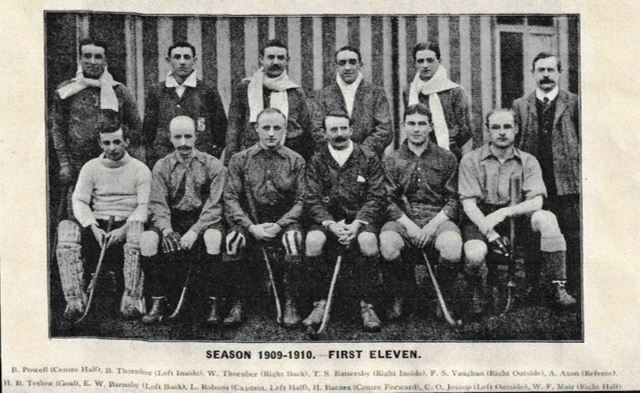
Sale men’s team from the 1909 – 10 season
Source: Hockey Museum
Newspaper reports from the early years of the Twentieth Century show that certain sections within the men’s hockey game were looking to develop leagues but there was plenty of opposition.
The Star Green ‘Un, Football and Sports Special in its edition dated March 6, 1909 made comment on the problem with leagues suggesting that hockey may develop into a sport rather than a pastime,
“…An agitation is on the front to establish leagues and other competitions; strong opposition to it is avowed, and the reason why the pastime should not have its competitive character changed are many and important. Hockey is sufficiently exhilarating and keenly contested to make one feel alteration is undesirable. Its popularity is rather on the increase than the wane, and the only stand the agitators have is that the promotion of leagues etc., will ensure regular fixtures for all. It is safe to assume, however, that if the Hockey Association encourages the agitators, the best of our clubs will keep to themselves for their members, to whom the public owe the popularising of the game, are not of the kind likely to give support to present propositions.”
It goes on to quote a “prominent player”,
“For Heaven’s sake, let us alone, and let there be one game free from the squabbling and enmity produced by competitions. Let us enjoy our happy freedom from harassing rules, regulations, and registration forms”
This is perhaps a comment on how leagues had effected other sports such as football and cricket and how they were developing. People may think when we look at how the football of today is developing “prominent player” had a point!
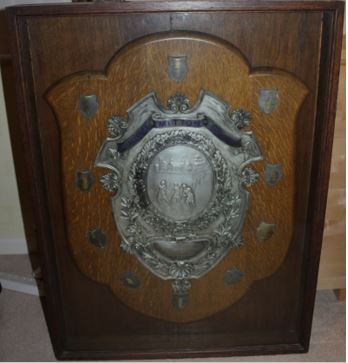
The Mitton Challenge Shield played for by women in the Farnworth Hockey League
An item not wanted by the men in their game
Source: Mark Evans
Two years later things had changed slightly. ‘Athleo’, the hockey correspondent for the Star Green ‘Un Football Special Edition in an article on January 7, 1911 said,
“….in some quarters there is a strong feeling in favour of leagues.”
The article continues saying that neither, the H.A. or the A.E.W.H.A. could stop the formation of the Ladies Hockey League. There was also a prediction that others may follow, which of course, proved to be right with many women’s leagues being set up in the North and Midlands in the following years.
It also refers to a ‘hockey coach’ whose remarks about league hockey and possible professionalism in the game promoted the H.A. Honorary Secretary, Phillip Collins, to reply on behalf of the H.A. Council,
“…so far as they know there is no truth whatever in the statement that “the formation of a league in Lancashire is only following on what has already taken place in men’s hockey in some Northern and Midland districts.”
Mr Collins emphatically declares that no such league or competition in men’s hockey has been or ‘will be’ sanctioned.”
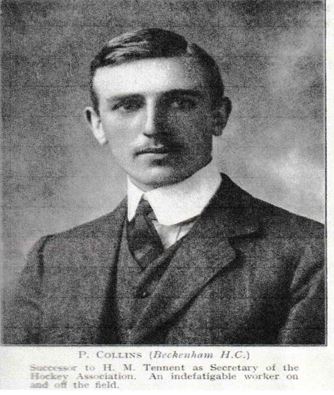
P Collins, Secretary of the Hockey Association
Source: Hockey Museum
The Sportsman newspaper joined the debate and in an article on January 26 1911, ‘Bully-Off’, their hockey correspondent, also talks about the views of the ‘professional hockey coach’, mentioned by ‘Athleo’, reiterating Collins’ comments it notes leagues,
“ …exists for ladies, but that is quite another kind of hockey altogether. The ladies can be entrusted to take care of themselves in this respect.”
The article uses football and cricket to try and highlight the problems leagues cause and claims that professionalism would creep in and spoil the sport of hockey. In Ireland, where leagues and cup competitions were the norm it claims leagues have,
“… done the game a tremendous amount of harm.”
It predicts that,
“… if leagues are introduced into hockey it will be a most disastrous thing, for once they come, they will be unable to be dispensed with, and hockey will assuredly – from what is now a perfect sport – descend to an extremely low order.”
It is not surprising that the editor of the ‘Sportsman’ received a letter from Lewis Roalfe, the hockey coach, referred to in the articles by ‘Athleo’ and ‘Bully-Off’, defending his views on leagues. His letter appeared in the Sportsman on February 8, 1911 and he says,
” ….. affiliated clubs had evidently begun to move in Manchester, for a letter had been published by one of your contemporaries from a well-known gentleman stating that several clubs in his neighbourhood had asked him to form a league ‘as they were sick and disgusted with the high handed way the Association at present manages its affairs.”
Interestingly, below the letter, was another letter to the editor. It was from M.A. Julius, Honorary Secretary of the A.E.W.H.A. confirming,
“.. the All England Women’s Hockey Association are just as firmly opposed to leagues and everything to do with them as the Hockey Association, whose policy in dealing with such matters, they fully endorse.”
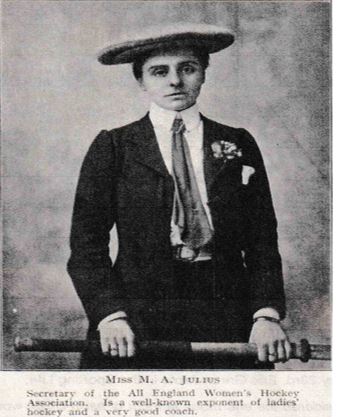
Miss M. A. Julius – secretary of the A.E.W.H.A.
Source: Hockey Museum
The debate between Collins and Roalfe was not only to be found in the newspapers, because as Jo Halpin notes in her doctoral thesis “Will you walk into our parlour?”, articles and letters appeared in the “Hockey Field,” a publication aimed mainly for women readers to promote hockey.
Fred Brown, the founder of the Ladies Hockey League (L.H.L.), was now also becoming involved. On 11th February 1911, the H.A. held a council meeting in Liverpool and The Sporting Life on February 15th, 1911 reported on it. They had received a letter from Brown, asking if women from mixed H.A. affiliated teams could enter their women’s teams in the recently formed Ladies Hockey League (L.H.L.). The reply, not surprisingly was no. It was proposed, with Eric Green seconding it, that Collins reply to Brown drawing his attention to Rule 15 of the Hockey Association that,
‘no member of any affiliated club may institute or take part in any hockey challenge cup or prize competition.’
And to point out
”…that the Hockey Association had no jurisdiction over women players.
It was also agreed to forward to Brown, all affiliated clubs and the Press, a reminder of the H.A.’s attitude to leagues and its desire to ensure,
“(1) That the game shall be retained in England in its present form as a pure amateur sport, played as a game of skill for the sake of the game.
(2) That it is essential that the fundamental principle of the Hockey Association be maintained and that every sort of prize, or cup competition or league, be forbidden
(3) That so long as the game is played for the sake of the game and all commercial considerations are placed on one side, there is no need for any encouragement such as that given by prizes and cup.
(4) That a very large majority, if not all, their affiliated clubs are strongly of this same opinion, and will stand loyally by the Council in supporting their amateur game on these lines.”
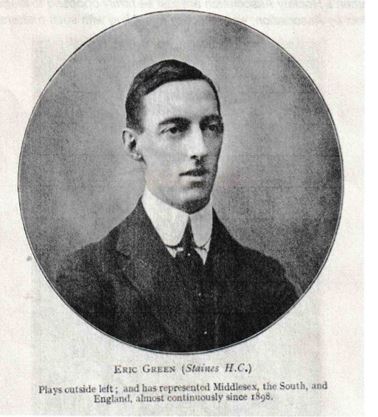
Eric Green
Source: Hockey Museum
A few days later, on February 23rd, Eric Green, wrote in The Sporting Life, expressing his opinion on leagues,
“…..I believe they have not considered the enormous amount of harm which would be done to the pastimes if leagues became a general. Friendly matches as now conducted, represent and engender the true sporting spirit, but if competitions were brought into existence the anxiety for points and other advantages would simply ruin the game. Of that I am fully confident, and I hope that no clubs will be so misguided as to try to kick over the traces of authority and band themselves into a league or cup competition. The game for the games sake must be hockey’s motto, and this has now been emphatically laid down by the Hockey Association…”
Eric Green was a member of the English team who won the Olympic hockey gold medal in London in 1908 and some may think was there one rule for one and one rule for another. Was the Olympics not a cup competition?
The debate continued and Fred Brown organised a meeting in Manchester in February, 1912 to discuss the formation of a men’s league, The Pall Mall Gazette, on February 21st reported on it saying,
“…The clubs in favour of a league are mostly composed of men in poor circumstances, who can only afford a small subscription; moreover, they cannot spare the money to travel far afield for matches, and as their grounds are bad there is serious difficulty in getting other clubs to visit them.”
However, the meeting decided against forming a league but the article warned,
“… it appears manifest to me that unless something is done to help these poorer clubs they will sever their connection with the H.A. like the Northern Union did from the Rugby Union.”
This was obviously a big threat to the game and the H.A. would have to be careful how the situation was dealt with. The big worry for the Association was unlike Universities, hospitals and the Army, where a form of competitive hockey was played, and where the H.A. felt they could keep a hold on any further development, the teams setting up a league would be unable to prevent the poaching of players. This would inevitably lead to professionalism and ruin the whole spirit of hockey.
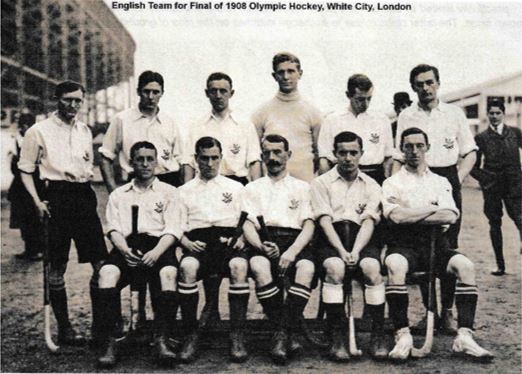
1908 English Olympic hockey team
Winners of the gold medal. The team included Eric Green
Source: Hockey Museum
The Sporting Life on the same day reported that although the hockey world had been “startled” by the talk of league hockey in the Manchester area it was confident it would not go much further and carried a summary of an interview with Collins in which he told the paper that it was understood that at the meeting in Manchester, where around forty clubs had attended the proposal to start a league was defeated by a majority of about 3 – 1. He thought with that with voting like this the scheme ‘seemed foredoomed to failure.’
This setback did not stop Brown trying to spread the word. The Heywood Advertiser in their March 1st, 1912, edition reports on a meeting chaired by Mr J. W. Gleave, with the Heywood Hockey Club, a club just North of Manchester where Brown and Mr R. Whittaker, also from the Ladies League, reported on the growth of the Ladies Hockey League, highlighting the advantages – neutral referees, improved temper of opposing teams and increased memberships for clubs (some clubs turning out two or three teams). It was enough to persuade Heywood ladies to join the Ladies Hockey League and invoked a discussion on men’s leagues. Gleave, who had tried previously to form a men’s league, informed those present that there was a meeting with the H.A. the following day and that any decisions should be dependent on that meeting.
Unfortunately, I have not been able to find anything out about that meeting but it is clear the matter had not been resolved and was dragging on into 1913. The Pall Mall Gazette reported on February 5th, 1913, that Gleaves, who was listed as the Hon. Secretary of the Manchester and District Association, was still pushing for competition hockey. A compromise was hinted at with teams playing for points but not for cups or medals, although, it seems the H.A. was not in favour of this. The article reminds readers of the declaration that was sent out two years previously after the Liverpool Conference and the fact that the H.A.’s position had not changed. It notes the push for leagues is,
“… practically limited to unimportant junior teams which find it impossible to arrange fixtures with better known sides. The latter clubs refuse to exchange matches on the plea of ground unsuitability.”
This statement hints at the high handed attitude of the H.A. and the fact that they thought themselves on a different level to the teams looking to develop leagues. It is not surprising with this attitude it was difficult to find common ground.
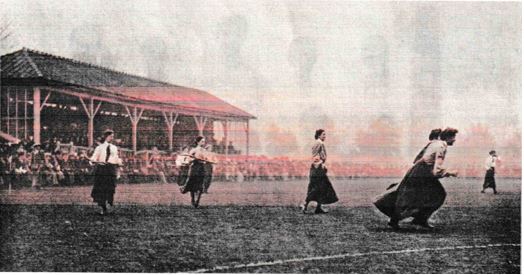
Richmond Hockey Club 1909
An impressive ground, unlike many of the grounds in the North
Source: Hockey Museum
On February 22nd, 1913 the Pall Mall Gazette, reported on a meeting of the H.A., the previous day, where the Manchester and District Association Scheme was considered but dismissed as the H.A. believed only four clubs were going to join the proposed body.
In spite of yet another setback, the enthusiasm for leagues in the North continued and interest was growing in the South. Three days later the same paper printed a letter from a member of a North London club who concluded,
“Taken on the whole, one cannot help but see that, whereas hockey would stand to lose nothing, it might and very probably would gain a very great deal, by the introduction of the league system, or something to correspond with the league system, into sport.”
Despite the efforts of the H.A. it was clear the questions of leagues would not go away. Miroy in ‘The History of Hockey’ says discussions continued between three H.A. officials and Gleave and in fact, Gleave, and his colleagues had prepared a set of drafts rules for a scheme of ‘District Associations’ which were to be reviewed by the secretary of the H.A. However, before a final decision could be made the First Would War began and things changed forever. The drive for men’s league hockey was forgotten and many players took up a totally different fight where tragically many lost their lives.
One is left to wonder. If War had not broken out, would hockey have developed in the same way as football, cricket and rugby league into a professional game? In which case things in the hockey world would have been a lot different.
Bibliography
Book
Nevil Miroy – “The History of Hockey”, Lifeline Ltd. 1986
Newspapers
Liverpool Mercury
The Star Green ‘Un, Football Sports Special
The Sportsman
Sporting Gazette
Pall Mall Gazette
Doctoral Thesis
Jo Halpin – ‘Will you walk into our parlour?’

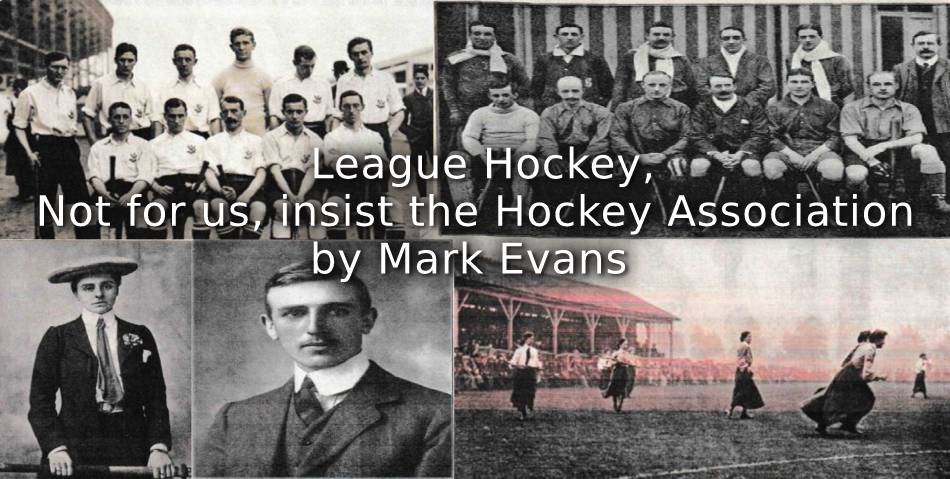
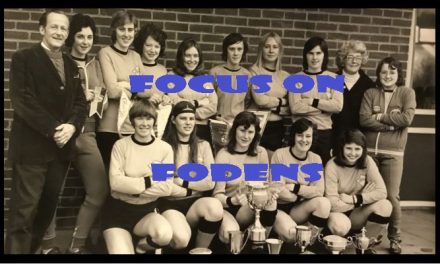
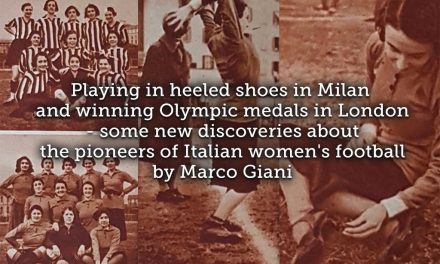
![“And then we were boycotted” <br> New discoveries about the birth of women’s football in Italy [1933] <br> Part 2](https://www.playingpasts.co.uk/wp-content/uploads/2019/07/And-then-we-were-boycotted-New-discoveries-about-the-birth-of-womens-football-in-Italy-1933-Part-2-by-Marco-Giani-440x264.jpg)
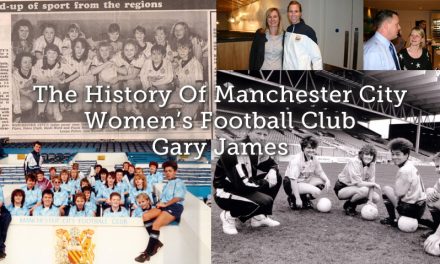
Hi Mark,
I’ve a forthcoming paper in the journal Northern History which looks at the very similar debates about whether to have a league for rugby union in Northumberland and Durham about the same time, and in those pre-war decades these debates were quite common in more amateur sports.
Hi Mike
Thank for your reply. I think hockey would have been a very different game if men’s leagues had taken off in the North in the early 20th Century. I would like to read your paper if you do not mind. Where do I find it?
If you do not mind if during your research you come across any information about hockey leagues, men, women or mixed, please could you let me know.
Regards
Mark Evans